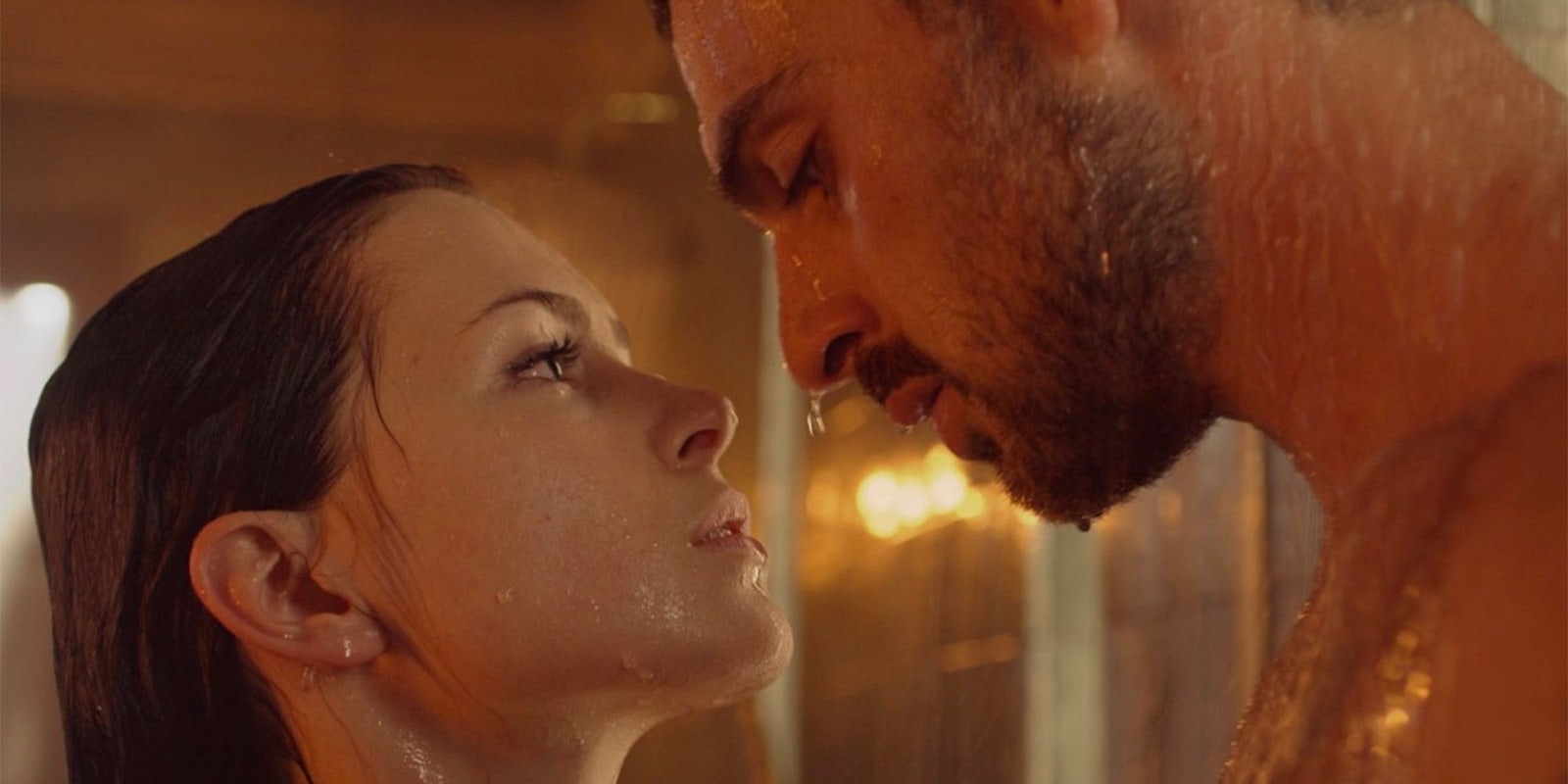Netflix‘s top 10 lists are partly shaped by algorithmic whims, but they also offer some insight into human nature. Right now, they’re telling us that people are horny. In numerous countries, including the U.S., U.K., Australia, Canada, France, and Brazil, the #1 film on Netflix is a Polish erotic romance called 365 Days. Like Fifty Shades of Grey, it’s based on a popular novel. And like, Fifty Shades of Grey, it’s being panned by critics while audiences watch it in droves.
Earning an impressive zero percent score on Rotten Tomatoes, 365 Days is about a young female executive who is stalked and kidnapped by a sexy Italian mob boss. He plans to imprison her for a year, wearing down her defenses until she falls in love with him. “Falls in love” being a dubious term in this context, since she can’t consent in any meaningful way. Aesthetically speaking, 365 Days resembles a bland commercial for cars, perfume, or perhaps a European travel agency. The acting is stilted, and the plot is a threadbare mess of sexist clichés interspersed with soft porn.
Of course, 365 Days‘ popularity is kind of self-fulfilling. If you hear that everyone’s watching an appalling Polish sex movie that’s free on Netflix right now, then you’re going to check it out, right? And Netflix only counts a few minutes of watching as “a view,” so we have no idea how many people actually stick around to the end. Many appear to be hatewatching, judging by the array of satirical TikToks making fun of the film.
Films like 365 Days and Fifty Shades are the Transformers franchise of erotic romance, lowest-common-denominator trash with no redeeming artistic value. This film is also extraordinarily rapey; a fantasy about an abusive relationship where a powerful man literally drugs and kidnaps a woman, then alternates between showering her with gifts and being deeply cruel. It’s a familiar set-up, stemming from a popular subgenre of mafia boss/billionaire/CEO romance novels. According to these books, the ultimate man is a controlling, Armani-clad businessman who lives in a minimalist grey apartment, reminiscent of Ivanka Trump’s hair-raising claim that her dream date would be Christian Bale in American Psycho. People like to crack jokes about Fifty Shades’ BDSM content, but at the risk of over-intellectualizing a film about two hot people boning down on a yacht… the main fetish here is probably capitalism. 365 Days spends more time on board meetings, shopping sprees, and displays of wealth than it does on sex scenes.
If you’re not familiar with the romance genre, it’s hard to understand why the hell something like 365 Days is so popular. It feels like blatant propaganda for rape culture; a baffling theme for a film written and co-directed by women, aimed at (one assumes) a majority-female audience. But 365 Days is just a more problematic riff on the same romance formula we see in Pride and Prejudice. The heroine is plucky, hard-working, and undervalued in her everyday life. The male love-interest is sexy, rich, emotionally distant, and mean, but he gradually opens up thanks to the love of a good woman. There’s literally a scene where 365 Days’ Massimo (Michele Morrone) tells the captive Laura (Anna-Maria Sieklucka), “I’d like you to teach me how to be gentle… for you.” Like so many straight romances, it’s a Beauty and the Beast narrative about taming a dangerous man, allowing him to be vulnerable, and ending (in theory) with the two leads on equal footing. Done right, this is a tried-and-true formula with plenty of room for tumultuous conflict, anguished misunderstandings, and the two leads growing together as a couple. Done wrong, it can be astoundingly misogynist, endorsing the idea that women can “fix” abusive men through the power of love. 365 Days ticks every box for the latter category, romanticizing a violent creep who stalks, kidnaps, manipulates, and sexually coerces the heroine.
The lack of consent is, of course, kind of the point. Both 365 Days and Fifty Shades offer a turbo-charged version of stereotypical gender roles: a vulnerable, submissive woman and a dominant, emotionally repressed man who pays for everything. The fantasy is all about having the power taken out of your (the heroine’s) hands, so she doesn’t have to feel guilty about enjoying kinky sex or frivolous spending. The other half of the bargain is a kind of enforced vacation from the stress of everyday life: A rich interloper who physically removes the heroine from her workplace obligations and crappy ex-boyfriend, replacing them with an all-expenses-paid trip to a series of luxury locations.
Before you get judgemental, this doesn’t mean that romance readers are all desperate to recreate 1950s gender roles and date rich men for their money, any more than CSI viewers are keen to become murderers and/or cops. While something like 365 Days is appallingly non-consensual on the surface, the fantasy is about the heroine (and the audience) taking back control. In real life, women live in a misogynistic society where we’re routinely subjected to sexual harassment and the threat of assault. These erotic romances take that unpleasant reality and transform it into something exciting and fun, usually ending with a controlling man submitting to vulnerability in a loving relationship. In an ideal world, we’d see more adult romance movies based on thoughtful executions of this trope, instead of offensive garbage like 365 Days. But with the film industry being what it is, are you really surprised?


